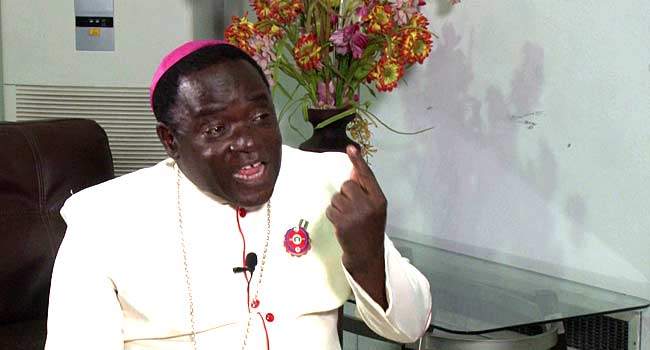Nigeria’s Quest for Stronger Institutions: Political Corruption and the Role of Local Government Autonomy
In a bold move to tackle political corruption in Nigeria, Abdullahi Ganduje, the National Chairman of the All Progressives Congress (APC), and Bishop Mathew Kukah, the founder of The Kukah Centre, have attributed the country’s political corruption to weaker institutions. The duo made this statement at a High-Level Meeting with the National Executives of Political Parties and other stakeholders in Abuja, organized by The Kukah Centre.
According to Ganduje, Nigeria needs strong institutions that will function to hold political parties and others accountable and assist democracy in Nigeria. He emphasized that weaker institutions have created an enabling environment for corruption to thrive, pointing out that political parties are also weak and contribute to the problem.
Kukah, who moderated a panel discussion at the meeting, called for the need to learn from the mistakes of the past and build stronger institutions and democracy in Nigeria. He stressed that institutions are supposed to be mirrors reflecting the aspirations, fears, hopes, and anxieties of an entire people, and that Nigerians must collectively and individually learn to say no to things that go against the principles of those institutions.
The duo commended the European Union for its support in developing the Political Party Management Toolkit (PPMT), which aims to improve the management and operations of political parties. They also hailed the Supreme Court’s judgment granting autonomy to local governments, which they believe will reduce the influence of money on politics and encourage good governance.
However, stakeholders at the meeting noted that the local government autonomy has exposed some things not usually looked at, including the need to look at the remuneration of political office, the cost of governance in Nigeria, and discourage money politics. They emphasized that the masses expect too much from politics and make demands thinking they were put there to enjoy on their behalf, thereby making politicians money-conscious.
The meeting also heard that the autonomy now means that the masses should step up and start holding local government chairmen to account, knowing how the money would be spent to ensure good healthcare, schools, and other public services.
In conclusion, the quest for stronger institutions in Nigeria is a crucial step in tackling political corruption and promoting good governance. The local government autonomy is a welcome development, but it is essential to build on it by addressing other underlying issues, such as the remuneration of political office, the cost of governance, and money politics. By doing so, Nigeria can take a significant step towards a more accountable and transparent political system.
